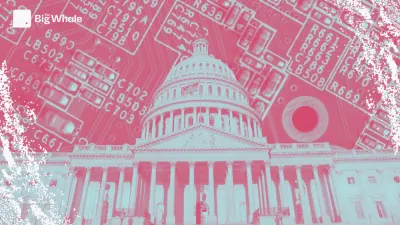We hear everywhere that Bitcoin is linked to a libertarian or even anarcho-capitalist ideology, where the individual is king. While it's true that some of its supporters identify with this vision, not everyone does. Far from it! So is Bitcoin right or left? That's a huge question. To try and answer it, we need to go back to the origins of this monetary and political UFO.
The creator of Bitcoin (with a capital B for the protocol and a lowercase b for the cryptocurrency), Satoshi Nakamoto, is a self-proclaimed "cypherpunk". It was on a mailing list (the Cryptography Mailing List) bringing together followers of this informal group that the concept was first introduced in 2008.
Who are cypherpunks? People, usually computer programmers, who believe that in the digital age in which we live, the right to privacy is essential within a free and open society. These digital freedom activists rely on the pro-active use of cryptography to protect privacy.
In his "Cypherpunk's Manifesto" (1993) the American Eric Hughes writes that "we cannot expect governments, corporations, or faceless organisations to grant us the right to privacy by virtue of their mere benevolence. It is in their interest to share information about us, and we should expect them to do so (...) We cypherpunks are dedicated to building anonymous systems. We defend our right to privacy with cryptography, anonymous messaging systems, digital signatures and electronic money."
Eric Hughes does not present himself as a resolute opponent of the state. He does, however, call for a fight against laws restricting the use of cryptography. More generally, cypherpunks are suspicious of the State and its laws because, in their view, the State (but also companies) could not help but use digital tools to monitor the population. So they need instruments to protect themselves, first and foremost a... currency to continue trading whatever the political regime. Bitcoin is not the first currency idea linked to this line of thinking.
Before it, B-Money (1998) and BitGold (1998), designed respectively by American cryptographers Wei Dai and Nick Szabo, paved the way. But it was Bitcoin that made the breakthrough. It is a decentralised system, operating on a peer-to-peer basis, in other words, according to its advocates, it dispenses with intermediaries such as governments and banks. It's enough to please the most zealous liberals... as well as those on the left who criticise the behaviour of "crazy finance", particularly since the subprime crisis. In 2011, Bitcoin had a strong following among the Occupy Wall Street movement. And in the first transaction in Bitcoin's history, in 2009, Satoshi Nakamoto referred to the bailout of British banks by public funds.
Replacing the state... or helping those excluded from the financial system
The fact that Bitcoin is decentralised very quickly won him favour with those in favour of less government, such as former Donald Trump adviser Steve Bannon. "Cryptocurrencies have a great future, they could play a very important role in the future, especially as part of a global populist revolt," he declared in 2019. Supporters who have given a "right-wing" colouring to Bitcoin. But many left-wing personalities (in the progressive sense) have also taken it up, such as Sam Bankman-Fried, the boss of the FTX exchange platform, who was the biggest donor to Democrat Joe Biden's campaign. And Biden recently indicated that he was prepared to donate up to $1 billion to defeat Donald Trump if he runs for re-election in 2024.
There's a shift underway in Washington, where many young, progressive elected officials are now leading a fight to push back proposed regulations that could stifle the industry. There's also the new Democratic mayor of New York, Eric Adams, who earlier this year pledged to take his first salary in bitcoins. In France, former MP Pierre Person had declared in The Big Whale that around twenty members of parliament held crypto-assets.
More fundamentally, Bitcoin offers many perspectives in which the left can also find itself: financial inclusion, a more transparent financial system, ownership of data... What is important to remember is that Bitcoin is profoundly apolitical. It is a public currency, not in the sense that the state exerts influence over it, but in the sense that anyone can get hold of it and build on it. Supporters of the left, as well as the right.
Heading 1 Heading 2 Heading 3 Heading 4 Heading 5 Heading 6 Lorem ipsum dolor sit amet, consectetur adipiscing elit, sed do eiusmod tempor incididunt ut labore et dolore magna aliqua. Ut enim ad minim veniam, quis nostrud exercitation ullamco laboris nisi ut aliquip ex ea commodo consequat. Duis aute irure dolor in reprehenderit in voluptate velit esse cillum dolore eu fugiat nulla pariatur.
Block quote Ordered list
Item 1 Item 2 Item 3 Unordered list
Text link
Bold text
Emphasis
Superscript
Subscript





